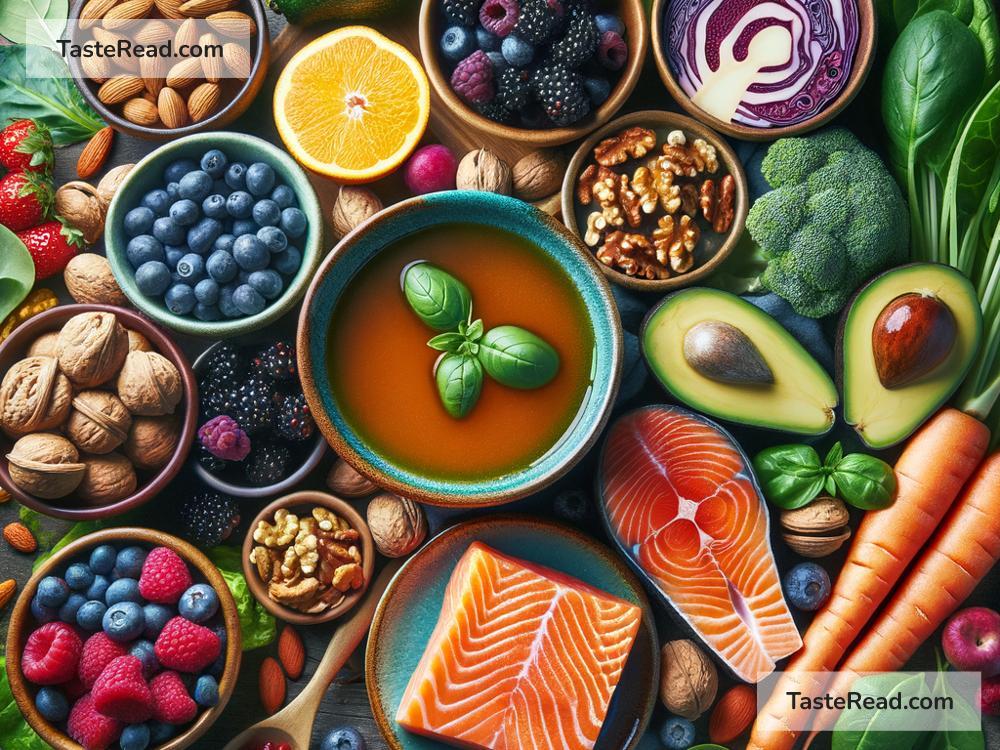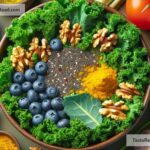Foods for Improving Tissue Repair: Boost Your Body’s Healing Power
When you get injured, whether it’s a cut, a bruise, or muscle strain, your body works hard to repair the damage. Tissue repair is like your body’s construction project—it uses nutrients from food as building blocks to mend what’s broken. Eating the right foods can speed up healing and make the process more efficient. So, let’s explore some simple and accessible foods that can help improve tissue repair.
Why Does Nutrition Matter for Tissue Repair?
Your body needs specific nutrients to rebuild damaged tissue. Protein acts as the foundation for new cells, vitamins and minerals fuel the construction workers, and healthy fats help keep inflammation under control. By eating a balanced diet full of healing foods, you can give your body the tools it needs to heal faster and better.
Top Foods for Tissue Repair
1. Protein-Rich Foods
Protein is essential for building and repairing tissues. When your muscles or skin are damaged, your body uses amino acids (the building blocks of protein) to create new cells.
- Chicken and Fish: Lean meats like chicken are packed with high-quality protein. Fish, especially fatty fish like salmon, also provides omega-3 fatty acids, which reduce inflammation.
- Eggs: Eggs are a powerhouse of nutrients, offering protein and essential vitamins like A and D that promote healing.
- Plant-Based Protein: If you’re vegetarian, foods like tofu, lentils, beans, and chickpeas are excellent sources of protein.
2. Vitamin C-Rich Foods
Vitamin C plays a crucial role in collagen production. Collagen is a protein that strengthens your skin, ligaments, and joints, making it key for wound healing.
- Citrus Fruits: Oranges, lemons, and grapefruits are full of vitamin C.
- Strawberries: These are not only delicious but also packed with vitamin C and antioxidants.
- Bell Peppers: Just one red bell pepper can provide more vitamin C than an orange.
3. Leafy Greens
Leafy greens like spinach and kale are great sources of vitamin K, which helps blood clot and prevents excessive bleeding. They also provide iron and other minerals vital for new cell production.
- Spinach: Rich in iron and antioxidants.
- Kale: Packed with vitamin K, vitamin C, and other nutrients.
- Swiss Chard: Contains nutrients that support tissue repair and reduce inflammation.
4. Zinc-Rich Foods
Zinc is a mineral that helps your body heal wounds. It’s involved in cell growth and repair, making it crucial for tissue regeneration.
- Shellfish: Oysters are one of the best sources of zinc, but crab and shrimp are also excellent choices.
- Pumpkin Seeds: These small seeds are packed with zinc, along with healthy fats and protein.
- Whole Grains: Foods like quinoa, oats, and brown rice provide zinc along with energy to keep your body strong.
5. Healthy Fats
While some inflammation helps with healing, too much can slow recovery. Healthy fats like omega-3s help balance inflammation while supporting tissue repair.
- Avocados: These are packed with heart-healthy fats and vitamin E, which aids skin repair.
- Nuts and Seeds: Almonds, walnuts, and flaxseeds are great sources of omega-3 and vitamin E.
- Fatty Fish: Salmon, mackerel, and tuna contain anti-inflammatory omega-3 fatty acids.
6. Foods High in Iron
Iron is essential for producing red blood cells, which carry oxygen to your tissues. Oxygen supports cell growth and speeds up healing.
- Red Meat: Beef and lamb are excellent sources of easily absorbable iron.
- Dark Leafy Greens: Spinach and kale are good plant-based sources of iron.
- Legumes: Lentils, chickpeas, and beans offer plant-based iron while also giving you protein.
7. Foods Rich in Antioxidants
Antioxidants help protect your cells from damage and support overall healing.
- Blueberries: These are loaded with antioxidants like anthocyanins, which reduce inflammation and promote repair.
- Green Tea: Green tea contains catechins, powerful antioxidants that help with healing.
- Tomatoes: Rich in lycopene, an antioxidant that supports tissue health.
8. Bone-Building Nutrients
If you’ve injured your bones or joints, foods rich in calcium and vitamin D can help strengthen them.
- Dairy Products: Milk, cheese, and yogurt are high in calcium and often fortified with vitamin D.
- Fortified Foods: Plant-based milks like almond or soy milk are often fortified with calcium and vitamin D.
- Fatty Fish: Salmon and mackerel also contain vitamin D and omega-3 fatty acids.
What to Avoid During Tissue Repair
Certain foods can slow down the healing process. Here are some to limit or avoid:
- Sugary Foods: Excess sugar can increase inflammation, slowing down repair.
- Processed Foods: Junk foods often lack the nutrients your body needs to heal.
- Alcohol: Alcohol can interfere with wound healing and reduce the effectiveness of immune responses.
Practical Tips for a Healing Diet
- Stay Hydrated: Water is crucial for transporting nutrients around your body. Drink plenty of it!
- Eat a Rainbow: Include colorful fruits and vegetables in your meals to ensure you get a variety of nutrients.
- Balance Your Plate: Combine protein, healthy fats, and carbs in each meal to support overall healing.
Conclusion
Your diet plays a big role in how quickly and effectively your body can repair tissue after an injury. By including protein, vitamins, minerals, and healthy fats in your meals, you’ll give your body the nutrients it needs to heal. Remember to prioritize fresh, whole foods and limit processed options. With the right foods and good hydration, you’ll set yourself up for faster recovery and healthier tissues. Happy healing!


